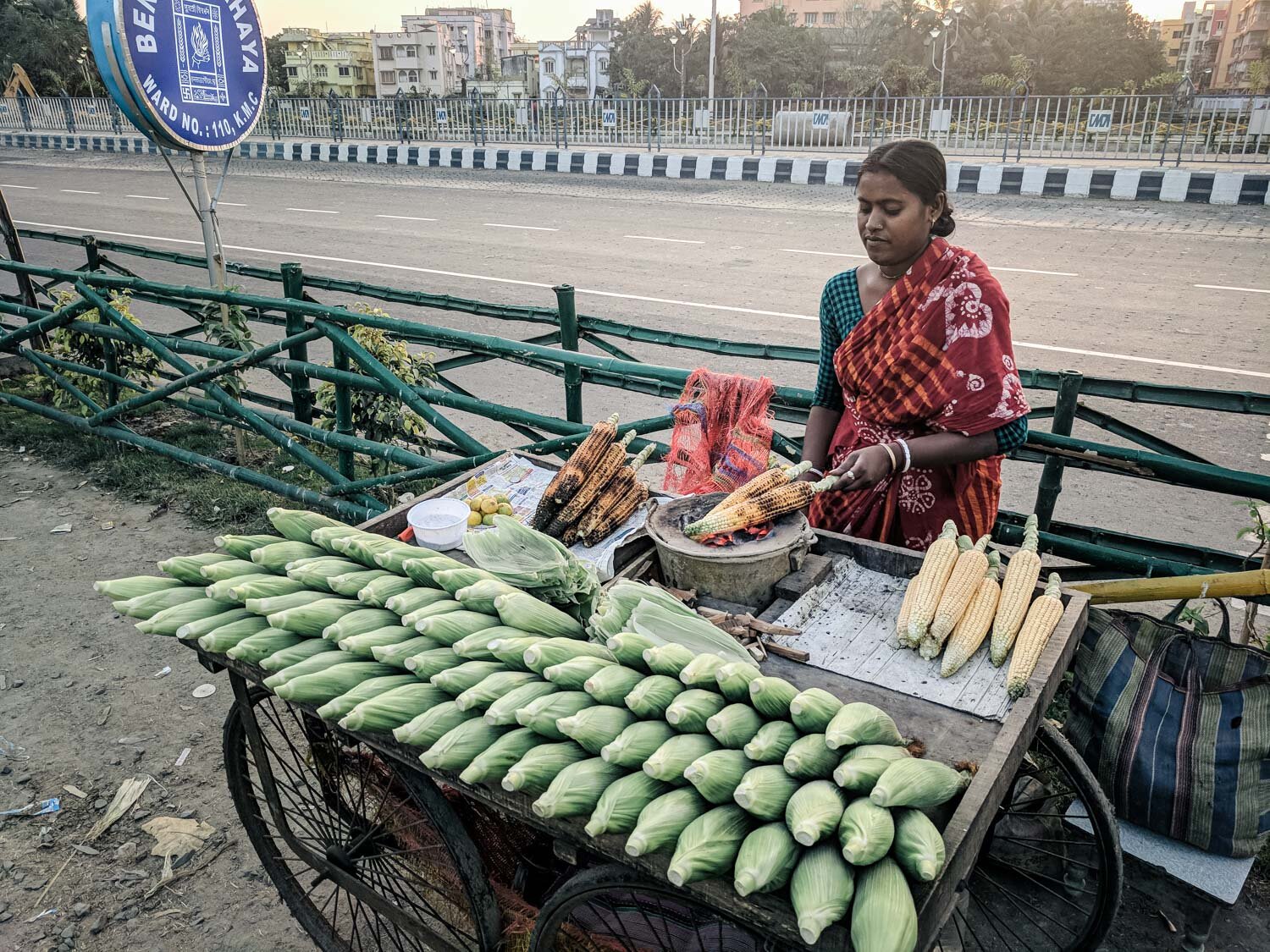Why We NEVER Haggle While Traveling
Whether you’ve been reading about the souks of Marrakech or the night markets of Bangkok, you’ve heard one category of advice throughout: “Haggle!” “You can get anything for less than half of the asking price!” “One time I paid just ten percent of what the seller wanted!”
I’m here to say that yes, that’s true… and no, we never do it.
Perspective on Privelege
If you can afford to travel, you’re privileged. If you can do it multiple times in a year, or even full-time, you’re wealthy beyond measure to a huge percentage of the world. Yes, even if you’re a budget traveler living on what feels like the bare minimum. (We travel full-time on $2,000 or less per month total for the two of us, which is definitely tight sometimes.)
Let’s use Thailand as an example. The average monthly income there is around $470 USD per month. If I had to guess, I’d say that most market sellers we might haggle with are probably making less than the average.
Imagine I want to buy a hand-carved wood elephant for my brother as a present. The seller asks for equivalent of $10. Sure, I could probably haggle it down to $6, and save $4.
But what does that say about the work of the person who spent their precious time carving the elephant? If I took the time to carve something like that, selling it for $6 definitely wouldn’t be worth my time. Doesn’t it feel a bit cheap and insulting to devalue that work enough to haggle over a few dollars?
That doesn’t even take into account the people who also need to make a profit on selling the things in question (unless, of course, you’re buying from the maker directly).
Flower vendor in Kolkata, India
Perspective on Prices
Even an Ikea mass-produced rug can cost over $200.
Is a hand-crafted rug that you fall in love with during your travels somehow worth less than that just because you’re in an impoverished country?
We don’t believe so.
And honestly, I’d rather pay a rug-maker directly (or at least pay a seller just one step removed) than give that $200 to Ikea. (No offense, Ikea!)
Entertainment vs. Survival
To be honest, most of what we want to buy while traveling isn’t essential at all. Yes, I might fall in love with a rug or want a wood elephant for my brother, but I don’t need those things. If haggling were genuinely a matter of survival, I’d take a different stance. But it’s not—at least on our end.
There’s a certain imbalance that comes when haggling is a privileged game from our end, and much closer to a matter of survival on the other end.
For 100 tourists a month, $5 each probably makes almost no difference. For a craftsman or seller in a less-privileged country, that extra $500 per month from those 100 tourists could be absolutely life-changing.
We all have that treasure-hunter gene in us, I think. The part that makes us feel a thrill of excitement when we get something precious for much less than we believe it’s worth.
But I would argue that the thrill of getting a “steal” is less important than supporting the local economy, especially when the global economy is so painfully unbalanced.
I’d like to think there are better ways to fulfill that treasure-craving than to nickle-and-dime artisans and merchants to whom our lifestyle seems impossibly extravagant.
Street food vendor in Kolkata, India.
Questions to Consider
I’d like to leave you with some questions to consider. I believe if you really dig into these, you’ll completely understand why we choose not to haggle (if you don’t already).
How much would beautiful hand-dyed silk scarf cost you to buy at home? What about a hand-woven rug? Or a hand-carved flute?
Do the prices of these imported items at home seem genuinely fair based on the amount of work that goes into creating these things?
What about the prices when you’re buying locally? If you would pay $50 for a hand-dyed silk scarf at home, why would you haggle when it’s $20 in another part of the world?
Do you believe that the people who put in the work to make the items you’re buying are making what you consider a fair wage for their time?
Is your sense of excitement over getting a deal more important than becoming part of the solution in terms of more fairly distributing global wealth? (Okay, that one was kind of snarky, but I hope you understand what I mean by now!)
Paying a few extra dollars here or there is a small price to pay for doing a little bit of good in the world, isn’t it?
Dyed fabrics and wool drying in Marrakech, Morocco.
Caveats
To be clear, I’m not saying you should unhesitatingly pay whatever anyone asks for anything. There are absolutely some unscrupulous sellers who will try to charge you insanely high amounts, or pass off fakes as the real deal.
Luckily, we tend not to shop in the ultra-touristy areas where this is an issue. When you’re in a local market, you’re much less likely to encounter this attitude.
Every situation is different, and only you know whether you’re genuinely being ripped off. (In that case, we personally would just walk away rather than haggle, because we don’t want to pour money into the tourist-scamming industry at all.)
We’d just like to ask that before you haggle, you consider the questions we’ve outlined above, and be open to the possibility that paying a little bit extra might be the kinder choice.



